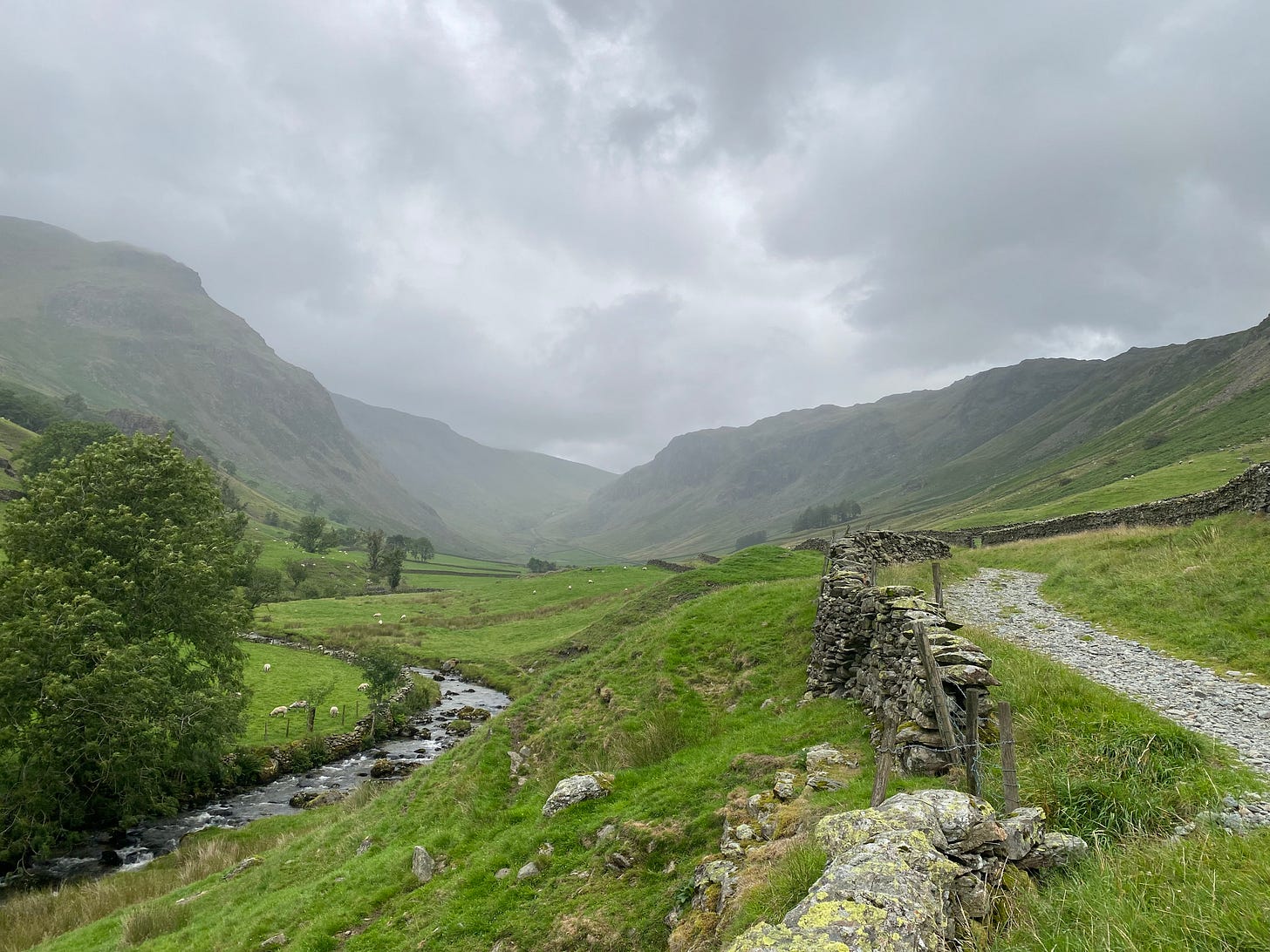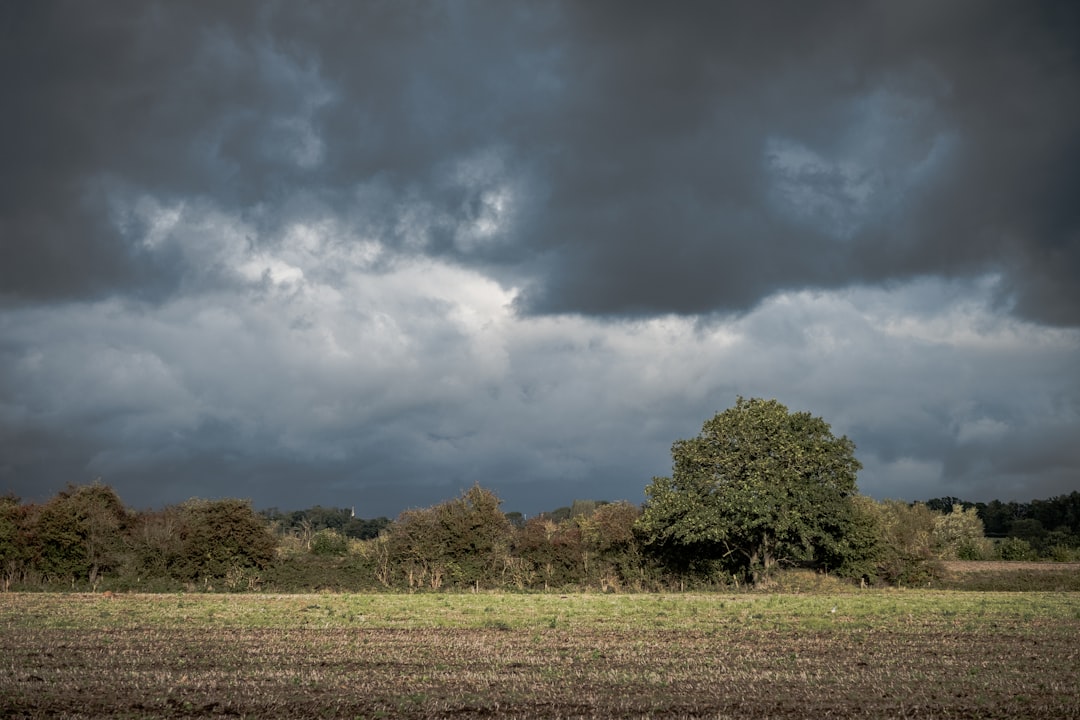Gleanings from the Field., Vol. 10
Memory and butterflies, The Technological Society, Henhouse Economics, and more

Welcome to another Gleanings from the Field,
Quite a few new folk have engaged with Over the Field since the last Gleanings so I thought I would start with a bit of an update. I have put some thought into the design of these newsletters, and going forward, each will have the following structure:
Update: A brief update on recent happenings, trips and events.
Gleanings from the Field: selection of recommended articles, essays, and books, with some brief comments.
From the Barn: Essays from my archives.
Threshing from the Field: Quotes, extended reflections on my recent reading, and ideas to discuss.
From the wilds: Short pieces of photography and insights of something from creation.
I hope you enjoy this Gleanings from the Field.
Hadden
Update from the Field
I recently finished my masters dissertation on a ‘biodiversity-friendliness assessment of Climate-Smart Agriculture’, which means I have a lot more free time now to do some more fun and interesting writing here on Over the Field.
Finishing this milestone also means I am now in that unenviable position of looking for a job - which means this Substack takes on a little bit more importance for me in terms of giving me something to do and providing a bit of income.
recently wrote a very good piece on why she writes behind a paywall, which made me realise the importance for writers of being paid for their work (and how relatively underpaid writers are considering the number of hours it takes to write an essay). Although I am endeavouring to keep all my essays free-to-read for the foreseeable future, I have made the decision to put all of my Gleanings from the Field, Wendell Berry Book Club, and Book Review posts (stay tuned for these) behind a paywall going forward (apart from a brief preview - which should hopefully provide something for everyone). I hope you understand this.If you would like to support my writing, here is a discount code available for a few weeks:
Gleanings from the Field
There have been a plethora of excellent substack essays published recently - almost too many to choose from and every day it seems more enter my inbox. Here are a few that I particularly want to highlight:
A recent find for me is
's wonderful Substack devoted to explorations on traditional cheeses, transhumance, and pastoralism. This essay looked at Norwegian cheeses and the importance of place. Having recently tasted the flavour bomb of Hornkäse, I can attest to some of the flavour experiences Trevor relates in this thoroughly enjoyable piece“Sometimes a cheese grows on you. You need to “sit down and get to know it”. Other times that first hit is the best, and you will never recapture the original high. Luckily no one can ever taste more than a fraction of this planet’s cheeses in a lifetime. There is always a new fix.”
Having a racoon invade your henhouse must be every poultry keeper’s worst nightmare (the British equivalent would be a fox raiding the roost) - and the wanton destruction the raccoon wreaked on
’s henhouse was horrific. But thankfully, out of the wreckage, Patrick was able to use this experience to write an insightful essay relating this event to modern-day economics:“It was sheer carnage when the racoon finally invaded. Someone patched together the grisly evidence the next day. Dropping in from the branches overhead, the raccoon had killed almost every chicken in the coop. It did not eat all the chickens, mind you, just killed them. By my guess, it was able to choke down most of one chicken. But it killed everything in sight.
This is what I call “henhouse economics.”
Henhouse economics is economic activity that combines predation, meaningless waste, and rapid exchanges in order to produce high currency-measured values with deferred or displaced costs. The racoon was in the henhouse as a predator; killed more than he could use and thereby wasted a valuable resource for himself and others; and did it rapidly in one fell swoop at no immediate cost to himself. Viola: henhouse economics.”
Patrick observed something I wrote about in my essay on efficiency in that modern-day efficiency is (contrary to the fundamental meaning of the word) an incredibly wasteful process due to its short-term tunnel vision focus on profit and time saving to the expense of all other long-term costs. I commend both his and my essays to you if you want to read up on this phenomenon further.
Finally, this reflection on memory and the monarch butterfly from
is simply beautiful. Take a read and be whisked away to an American milkweed meadow teeming with life:The great annual migration of the butterflies, then, might be understood as the reenactment of these millennial metamorphoses of climate and biome, danced by the butterflies on the wheel of the year. Or why not call it a memory, vast as a continent, written in brightness and bloom, slant of light, shift of temperature?
Now for some non-substack recommendations:
Long-term readers will be familiar with the discourse surrounding the eco-modernist desire for a farm-free future (and my highly critical stance towards this vision). Chris Smaje has written the go-to polemical book against this movement in his Saying No to A Farm Free Future. Andrew J. Spencer has written a succinct and excellent review of the book over on Front Porch Republic which I highly recommend
“The ecomodernist approach of Regenesis relies on a mechanistic understanding of humanity. The presumption is that humans are merely fleshy machines that can adapt to flourish in any environment as long as their basic material needs are met. That doesn’t match with most people’s experience of life.”
Staying with excellent reviews from Front Porch Republic,
has written the best review I have read on Sohrab Ahmari’s Tyranny, Inc. a book I would love to read and one which sheds a glaring light on the tyranny of big corporations.“The problem is not limited to employment contracts, however. Corporate tyranny can potentially expand to ensnare unwitting victims. Take, for example, private emergency services. Ahmari mines the news for several shocking anecdotes of people saddled with unexpected bills for ineffective private fire and emergency services showing up unrequested. Take, too, the steady elimination of local news outlets, victims of cost reduction after being bought up by national news conglomerates. The number of victims of emergency bills at the hands of private enterprise or those suffering from a dearth of local news essential to effective political participation are incalculable.”
From the Barn
In this essay, I lamented the severe decline in British breeding bird populations and further laminated why this isn’t viewed as an abject tragedy in our modern society.
And The Fields Fall Silent
The British Trust for Ornithology recently published a tool which shows the number of breeding bird species that have been lost from the place you live since 1970. Typing one’s postcode into the online tool brings up a list of now-extinct species from the 1 km square surrounding one’s home. The results of the BTOs rese…
Threshing in the Field
I am currently reading the phenomenal The Technological Society by Jaques Ellul. This book is a goldmine of philosophy, critical engagement with technology/technique, and insight into how to forge a virtuous path through the mire of modern-day memory-killing, attention-sapping technology (even if Ellul was writing well before the onslaught of social media and smartphone tech). There is plenty here that is rich fodder for future essays, but I wanted to briefly discuss something I was reading today.
Keep reading with a 7-day free trial
Subscribe to Over the Field to keep reading this post and get 7 days of free access to the full post archives.








